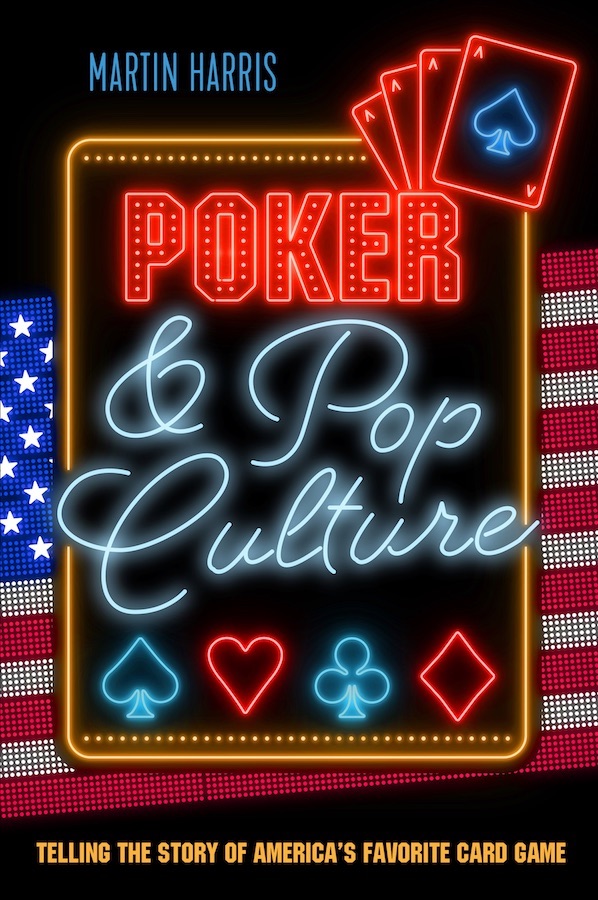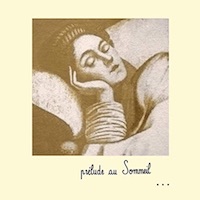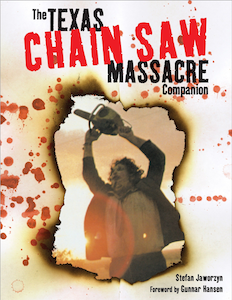The Frank Approach
 Reports that former Senator Alphonse D’Amato may become the chief spokesperson and lobbyist for the PPA have encouraged speculation that a Congress member will soon attempt to introduce legislation to repeal the Unlawful Internet Gambling Enforcement Act. Rumor is that representative Barney Frank (D-MA) might be the one to bring such legislation to the House floor. (Frank has not commented on the rumor as yet.)
Reports that former Senator Alphonse D’Amato may become the chief spokesperson and lobbyist for the PPA have encouraged speculation that a Congress member will soon attempt to introduce legislation to repeal the Unlawful Internet Gambling Enforcement Act. Rumor is that representative Barney Frank (D-MA) might be the one to bring such legislation to the House floor. (Frank has not commented on the rumor as yet.)Frank was one of a few members of Congress who were willing to speak out against legislating online gambling last year prior to the UIGEA’s passage. In May 2006, Frank appeared on the Pocket Fives podcast to discuss how such legislation amounted to unfair restrictions on civil liberties. I’m not seeing that podcast showing up any longer in the P5s archive, but PRWeb’s report on that interview can be read here. In the report, PRWeb mentions how “Frank likened the online gambling ban to the Eighteenth Amendment to the U.S. Constitution” that ushered in the era of Prohibition.
As the issue of legislating online gambling was being debated last year, many others (including yours truly) also pursued the Prohibition analogy. Even conservative pundit George F. Will dubbed the Act “Prohibition II” in his Newsweek column that appeared shortly after the Act made it through the Senate. History has branded that “great social and economic experiment, noble in motive and far reaching in purpose” (as President Hoover described Prohibition I in 1928) a clear-cut failure. Indeed, the 18th Amendment (ratified in 1919, put into effect in 1920) is the only amendment to the Constitution ever to be repealed by another amendment (the 21st, in 1933).
One would anticipate, then, that those set to argue for the UIGEA’s repeal would want to exploit its several similarities with Prohibition. Yet there are some profound differences that might make using such an argument a less than optimal strategy to maximize expectation against our nemesis here. (Whoops . . . sorry about that. Can you tell I have been reading Bill Chen and Jerrod Ankenman’s The Mathematics of Poker?)
I’ll just run through a few of the similarities and differences here, then we can think about whether or not members of Congress in our corner should spend much time evoking Prohibition as they make the case for repealing the UIGEA.
Ways the UIGEA is like Prohibition
(1) Both emerged from much broader, conservative agendas.
In both cases legislation passed thanks to relatively small -- but politically effective -- groups who were able to marshal support by exploiting fears about threats to family and country. The Anti-Saloon League -- the single most powerful lobbying group in Washington that worked to push through the 18th Amendment -- frequently reminded Americans of the fact that a number of saloons were owned by German immigrants, thereby exploiting then-potent anti-German sentiment to their favor. The League loudly publicized how the “alien enemies” and their “Kaiser brew” posed a dire threat to Americans’ safety and morals. Similarly did the UIGEA’s proponents also routinely link legislating online gambling to issues of national security. Rep. Jim Leach (then R-IA) even tried to include a prohibition against online gambling in an early draft of the Patriot Act, arguing that online gambling presented “the greatest potential for money laundering that exists in the world.” Arguments against online gambling were also folded into conservatives’ “morality” platforms, becoming part of the “pro-family movement” advanced by former Senator Bill Frist (then R-TN) and others. As Frist told the Senate on 9/5/06, “internet gambling threatens to undermine the quality of life of millions of Americans by bringing an addictive behavior right into our living rooms.”
(2) Both fail to criminalize the targeted behavior.
The terms of both the UIGEA and the 18th Amendment are similar, as well, insofar as neither criminalize the consumer, but rather take aim at delivery mechanisms. The 18th Amendment did not make it illegal to drink alcohol, but rather prohibited the “manufacture, sale, or transportation of intoxicating liquors.” Similarly, the UIGEA does not expressly forbid any American from gambling online, but does target the “financial instrument[s] for unlawful Internet gambling,” “designated payment systems,” “financial transaction providers,” and “interactive computer services.” Just as Prohibition did not criminalize the act of taking a drink, the UIGEA does not make it a crime to log on to an online poker site and play.
(3) Both are unenforceable.
Although Prohibition agents during the 1920s did make approximately 500,000 arrests under the Volstead Act (the act that provided enforcement for the 18th Amendment), no law could wholly prevent the “manufacture, sale, or transportation” of alcohol throughout the country. For example, during the Prohibition era, Americans could readily visit boats parked offshore to purchase alcohol. The UIGEA’s reach does not (legally) extend to offshore online gambling sites or third-party vendors, either. Prohibition was difficult to enforce within our borders, as well. Surveys showed that the Prohibition Bureau’s agents were only able to shut down around 10 percent of the country’s operating stills. This ineffectiveness parallels what many have said about the UIGEA asking too much of America’s financial institutions to police its patrons’ activities. Many have noted how banks haven’t the capacity to monitor the source of each and every check passing through their hands. Most therefore believe that whatever regulations the feds ultimately deliver to the banks to halt online gambling transactions -- what they have 270 days to do, according to the Act -- those regulations will likely be impracticable.
Ways the UIGEA is NOT like Prohibition
(1) The 18th Amendment was ineffective; the UIGEA is effective.
It should be noted that Prohibition might well have caused some decline in the overall consumption of alcohol. An Ohio State University study documents the differences in consumption between the late 1910s and the mid-1930s. (Other studies suggest consumption actually rose during these years.) In any event, for those who wanted to drink, there was no shortage of outlets where they could satisfy their desire to do so. Many of my favorite hard-boiled novels set during the Prohibition era depict the ready availability of alcohol at “speak easies” and other establishments. For the American who wishes to gamble online, however, the UIGEA has succeeded already in reducing our options considerably. Various factors -- most particularly the sudden unavailability of Neteller -- have accelerated this trend. The list of online poker sites recommended by Poker News has now dwindled to just six sites.
(2) Prohibition glamorized drinking; the UIGEA has not glamorized online gambling.
During the 1920s, arrests for drunken driving went up considerably (some estimate close to 500%). So did deaths from alcoholism -- some cities (like Chicago and New York) reported deaths from alcoholism rising as much as 600% during the 1920s. Opponents argued that laws against drinking actually encouraged consumers to drink more, thus leading to such abusive (and dangerous) behaviors. Such is hardly the case with the UIGEA and online gambling. Gambling -- even poker -- continues to be regarded as a kind of “outlaw” behavior, and the passage of the UIGEA has only reinforced that view for the general public. I recall an item on Two Plus Two from back in October in which a poster described what a lobbyist for the Poker Players Alliance had told him about the atmosphere on Capitol Hill last summer and fall. Among the several points the poster brings up, he mentions how “even though many Reps, Sens, and staffers played poker, it is still generally seen as a ‘sin,’ which made it extremely hard to get anyone overtly to support poker, its players, or the industry.” Even though the UIGEA doesn’t criminalize playing poker online, the law has hardly made doing so seem glamorous. If anything, the law has only further reinforced the notion that poker and gambling is “generally seen as a ‘sin.’”
(3) Prohibition invited public outrage; the UIGEA has not.
In 1926, a national poll showed that less than 20% of Americans were satisfied with the law as it had been written and was being enforced. Nearly half thought the law should be changed to allow for the sale of beer and wine, and over 30% percent thought it should be repealed altogether. Such overwhelming opposition simply doesn’t exist when it comes to online gambling, mostly because most Americans don’t do it. A Harris poll back in February 2006 showed that only very small percentages of adult Americans who use the internet ever play poker for real money, gamble on sports, or visit casinos and wager real money when they are online. 95% of respondents said they never visited online casinos, 94% said they never played online poker, and 97% said they never bet on sports online. Whereas laws prohibiting the manufacture and sale of alcohol affected a great majority of the population, laws about online gambling matter to relatively few. There have been several non-scientific polls -- much cited in the poker community -- that show high percentages of respondents opposing laws against online gambling. (Here’s an example of one from The Wall Street Journal.) Still, for reasons cited above, Americans -- and, even more importantly, our elected officials -- aren’t nearly invested in online gambling as they were in being able to purchase an adult beverage.
So parallels exist, but there are some key differences, too. Differences that in my opinion will lessen the effectiveness of continuing to compare the UIGEA to Prohibition as we move forward and try to get the Act repealed.
Had a brief email exchange over the weekend with poker pro and author Lou Krieger about some of these things. His blog is a good site to visit if you are interested in following the issue (and for lots of other reasons, too). I mentioned to him how it seemed to me that differences between the UIGEA and Prohibition might make the Prohibition “argument” less effective.
“Arguments don’t work nearly as well as public sentiment or money,” Krieger responded.
He’s right, of course. If Barney Frank does try to introduce legislation to repeal the UIGEA, he might gain some ground making comparisons to Prohibition. But I think that tactic will only go so far, mainly because it doesn’t really involve either “public sentiment or money.” A much better strategy will be to show Congress how repealing the UIGEA and then regulating online gambling would bring much needed tax dollars into the nation’s coffers. Such a practical approach would likely garner more support than pathos-filled laments about Prohibition (or, perhaps, even more serious discussions about the infringement of civil liberties).
We’ll see what -- if anything -- happens. If Frank does turn out to be our man, let’s hope he (and others fighting for our cause) can figure out how to present the case in the most practically effective manner.
Labels: *the rumble













3 Comments:
Even over here online poker is viewed by a lot of people as gambling pure and simple.
It's a trait of the British that we attack that which we don't understand instead of trying to actually understand what all the fuss is about.
One of the biggest horse racing dates in the calendar is the Grand National at Aintree (must be coming up soon come to think of it). Millions of bets are taken from people who think of it as a little 'harmless fun' (which it is, mostly). However tell that that you play micro limit poker and they imeediately pigeonhole you in the same compartment as ramapnt alcoholics.
Even my mother & father skirt around the subject when it's mentioned. Once upon a time I did, to be fair, have a tendency to overdo the slots, but that was 20 years ago. Whereas they should be applauding my single minded attempts to learn a game from scrath and become good at it I simply can't engage them on the subject.
Does this have anything to do with your excellent post? Well only in so far as the parallel you draw between poker and prohibition is very apt. While people think of poker as some underground, subversive game destined to ruin its participants morally even if not financially then we're up against it.
Goodness knows what it must be like in the bible belt over there...
My bidggets question is this: If there are so few of us, why waste the time to pass the law in the first place? Those that have issues with gambling will find a way to gamble anyway. I just pray that epassporte and myWebATM are in business long enough to fund my poker accounts...
Good points, cell & Christopher. Yes, it is difficult (though necessary) to avoid sitting around saying "how did we get here?" and instead focus on what comes next. Spend any time at all trying to piece together how the UIGEA came to be & yr quickly mired in an existential stupor, unhelpful to anyone.
Post a Comment
<< Home